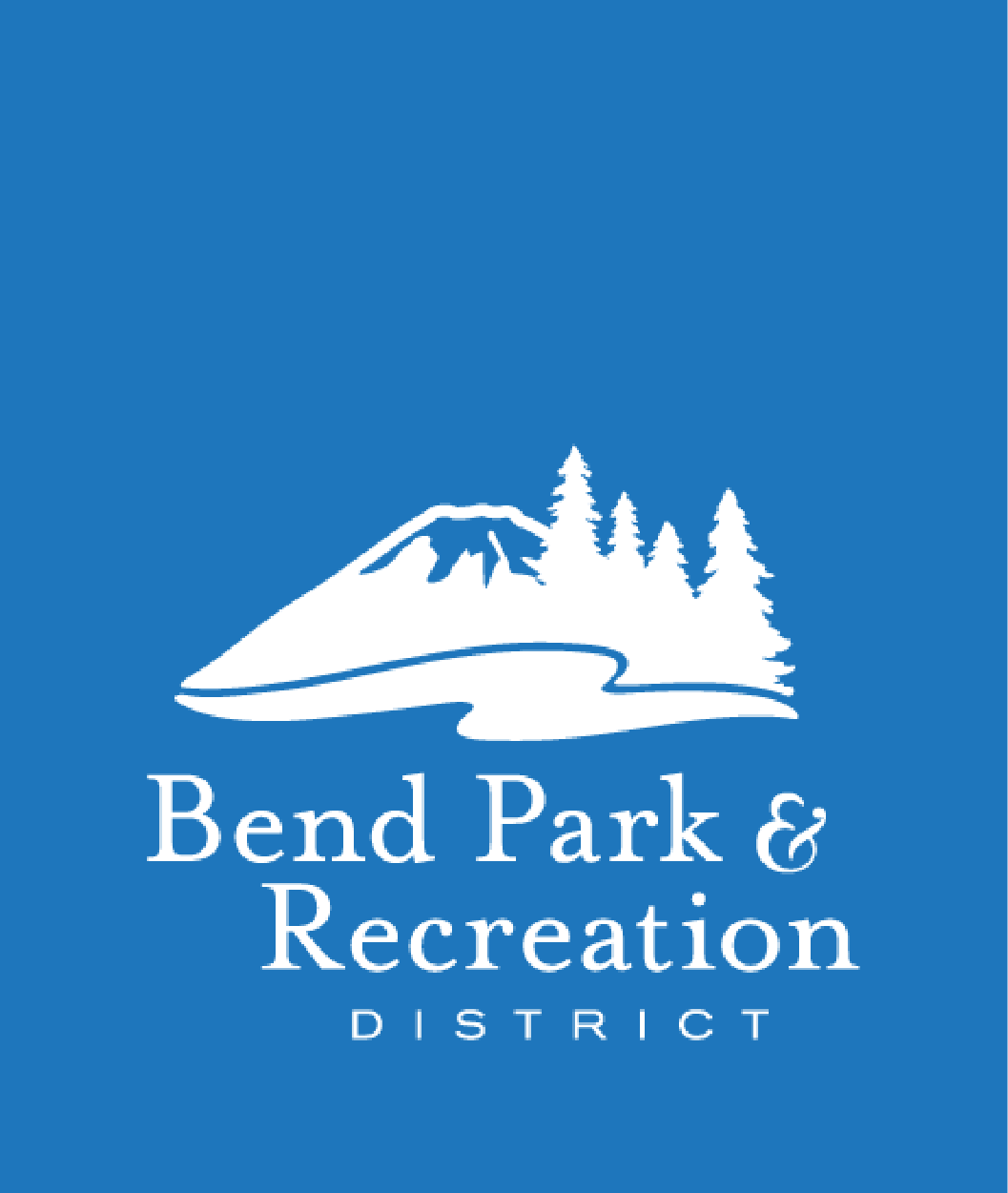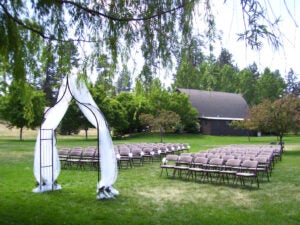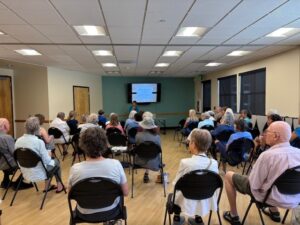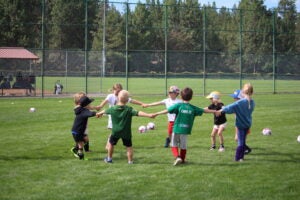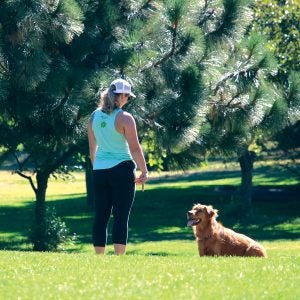ARTÍCULO 1. INTRODUCCIÓN
- Bend Park & Recreation District es un distrito especial de Oregón, autorizado por ORS 266.410 (Oregon Revised Statutes) para ofrecer servicios de parques y actividades recreativas. La Mesa Directiva del Distrito, de conformidad con ORS 266.410(7)(b), ha aprobado las siguientes reglas y regulaciones para asegurar que los parques y actividades recreativas de Bend continúen siendo acogedores y seguros para los habitantes y visitantes. Estas reglas y regulaciones se aplican y se harán cumplir en todas las propiedades que el Distrito administre.
- A través de estas reglas y regulaciones, el Distrito promueve y protege la salud, el bienestar y la seguridad de todos los usuarios en las propiedades del Distrito.
- El Distrito se esfuerza por cuidar de manera responsable los recursos públicos, al proteger la salud e integridad del sistema y evitar su uso excesivo e indebido y asegurar que las futuras generaciones tengan acceso a los parques de gran calidad que Bend ofrece hoy en día.
- El Distrito desea que todas las personas se sientan bienvenidas y acogidas en nuestros espacios, donde tratamos a cada persona con respeto y dignidad y responsabilizamos a quienes no cumplan con estos principios fundamentales.
ARTÍCULO 2. DEFINICIONES
2.1 «Animal de Asistencia»: término definido en ORS 659A.143.
2.2 «Lugar para Acampar»: lugar en el que se coloca cualquier ropa de cama, saco de dormir u otro material utilizado para dormir o cualquier tienda de campaña, carpa u otro refugio con el fin de mantener un espacio temporal para vivir o dormir.
2.3 «Cuidador»: persona encargada de brindar atención o asistencia a un menor de edad, una persona con discapacidad o un adulto mayor. Los cuidadores pueden ser familiares, amigos, vecinos o profesionales.
2.4 «Presidente del Panel de Apelación de Exclusión»: miembro que regresa de la segunda sesión de apelación más reciente, cuya función es emitir decisiones escritas de segundas apelaciones del Panel de Apelación de Exclusión.
2.5 «Ciudad»: la Ciudad de Bend (City of Bend).
2.6 «Responsable de Tomar la Decisión»: persona o Panel que decide sobre el proceso de apelación, tal y como se describe en los Artículos 16.5 y 16.6.
2.7 «Distrito»: Bend Park & Recreation District.
2.8 «Centro de Recreación y Estructura Interior del Distrito»: cualquier edificación, estructura alquilada, administrada u operada por el Distrito.
2.9 «Parque del Distrito»: cualquier parque de vecindario, parque comunitario, parque regional, parque de uso especial, plaza, sendero, camino, canchas deportivas, complejo deportivo o propiedad no urbanizada que el Distrito arrienda, administra, posee u opera.
2.10 «Programa del Distrito»: cualquier programa recreativo, actividad o evento especial financiado por el Distrito.
2.11 «Propiedad del Distrito»: todos los bienes e inmuebles que son propiedad del Distrito o en los cuales el Distrito tiene un interés de propiedad, incluso como titular de derecho de uso, o sobre los que el Distrito tiene la responsabilidad de administrar.
2.12 «Aguas del Distrito»: todos los ríos, arroyos, estanques, fuentes de riego, canales y otras vías navegables: (a) ubicadas en la Propiedad de Distrito; o (b) sobre las que el Distrito tiene autoridad de administrar debido al derecho de uso público u otro acuerdo.
2.13 «Expulsión»: significa una orden para que una persona abandone temporalmente la Propiedad del Distrito (ej., durante el resto del día o menos).
2.14 «Responsable del Cumplimiento de Normas»: significa cualquier miembro del personal encargado del orden público, guardaparque, director ejecutivo, una persona designada, o cualquier otra persona con autoridad para hacer cumplir estas Reglas.
2.15 «Exclusión»: significa una orden que excluye a una persona de todos o parte de los Parques, Centro de Recreación, Estructura Interior y Programas del Distrito de conformidad con el Artículo 15 de estas Reglas.
2.16 «Panel de Apelación de Exclusión»: se refiere al Panel Responsable de la Decisión sobre una apelación, tal y como se define con más detalle en el Artículo 16.6.
2.17 «Persona Excluida»: significa una persona a la que se le niega el acceso a todo o parte de la propiedad del Distrito, o se le prohíbe el ingreso, por un período de tiempo determinado.
2.18 «Director Ejecutivo»: se refiere al Director Ejecutivo del Distrito, que ha sido nombrado y designado por la Mesa Directiva como Director Ejecutivo. A menos que se indique lo contrario, en este reglamento, el Director Ejecutivo también es Responsable del Cumplimiento de Normas.
2.19 «Fuegos Artificiales»: significado asignado en ORS 480.111(7).
2.20 «Identidad de Género»: significa la identidad, apariencia, expresión o comportamiento relacionados con el género de una persona, independientemente si la identidad, apariencia, expresión o comportamiento son diferentes de los asociados con el género asignado a la persona al nacer.
2.21 «Aviso de Exclusión»: significa un aviso emitido de conformidad con el Artículo 15 de estas Reglas que excluye a un individuo de toda o parte de la Propiedad, Parques, Centro de Recreación, Estructura Interior o Programas del Distrito por un período de tiempo.
2.22 «Dueño»: el propietario legal o el cuidador de un animal.
2.23 «Equipos o Vehículos Rodantes» bicicleta, patineta, escúter, patines en línea, bicicletas eléctricas, escúteres eléctricos u otro equipo rodante eléctrico de micro movilidad que utilice ruedas para desplazarse.
2.24 «Reglas»: significan las reglas, normas y regulaciones del Distrito.
2.25 «Instrumento para Fumar»: significado de dicho término en OAR 333-015-0030(23).
2.26 «Sistema de Administración de Inhalantes»: significado de dicho término en OAR 333-015-0030(14)(a).
2.27 «Arma»: significado de dicho término en ORS 166.360(10).
2.28 «Animales Silvestres»: animales, incluidos mamíferos y aves, que no son humanos ni están domesticados, a excepción de peces.
ARTÍCULO 3. REGLAS GENERALES DE CONDUCTA
3.1 La Propiedad del Distrito se utilizará de acuerdo con estas Reglas y todas las leyes, ordenanzas y regulaciones aplicables del municipio, del condado, estado o gobierno federal. Las actividades criminales en la Propiedad del Distrito se denunciarán al Departamento de Policía de Bend o a la Oficina del Alguacil del Condado de Deschutes. Las infracciones de estas Reglas están sujetas a la aplicación de ley por parte del Responsable del Cumplimiento de Normas.
3.2 Sin limitar la generalidad del Artículo 3.1, mientras se encuentre en la propiedad del Distrito, las personas no pueden:
- Discriminar, molestar, perturbar, acosar o poner en peligro, de cualquier otro modo, la comodidad, la salud, la paz o la seguridad de otra persona, incluso mediante cualquier comportamiento amenazador, intimidatorio, abusivo o de acoso hacia los demás.
- Desobedecer un código de conducta específico del lugar, cualquier letrero, aviso publicado o cualquier indicación escrita razonable del Responsable del Cumplimiento de Normas.
- Desobedecer cualquier indicación verbal razonable o petición del Responsable del Cumplimiento de Normas basada en las políticas del Distrito o durante una emergencia.
- Poseer o consumir bebidas alcohólicas sin permiso.
- Dañar, remover, alterar, modificar o vandalizar la Propiedad del Distrito, incluyendo vegetación, tierra, equipo y piedras, excepto en las áreas de juego designadas.
- Tirar, depositar o abandonar basura o cualquier residuo u otros materiales, excepto en los contenedores específicos para la basura. No debe llevar basura, restos de jardinería u otros residuos a la Propiedad del Distrito para su desecho.
- Pasar la noche o acampar en la Propiedad del Distrito. Se notificará al propietario u ocupante de la tienda de campaña o carpa que lo retire, de no hacerlo, se retirarán los materiales conforme a la ley estatal.
- Conectarse a los servicios públicos del Distrito para uso personal.
- Caminar, estar de pie, sentarse, treparse o saltar desde cualquier monumento, estatua, edificio, fuente de agua, barandilla, cerca, techo u otra estructura no destinada a tal fin.
- Utilizar un instrumento para fumar o cualquier dispositivo para inhalar en la Propiedad del Distrito.
- Crear o mantener cualquier llama o fuego encendido, incluidas las barbacoas o parrillas de carbón. Las estufas portátiles de propano y las barbacoas o parrillas de gas están permitidas siempre que se utilicen de forma segura y no dañen la Propiedad del Distrito ni representen un riesgo de incendio.
3.3 El Director Ejecutivo tiene la autoridad para aplicar estas Reglas de la siguiente manera:
- El Director Ejecutivo puede adoptar un código de conducta específico para un lugar cuando sea necesario interpretar, aclarar estas Reglas o para proteger la salud, bienestar y seguridad de todas las personas, Propiedad de un Parque o Centro de Recreación y Estructura Interior del Distrito. La autoridad del Director Ejecutivo para adoptar un código de conducta específico de un lugar no puede delegarse.
- El Director Ejecutivo podrá conceder excepciones a cualquiera de estas Reglas mediante un permiso o acuerdo expedido de conformidad con el Artículo 12.
ARTÍCULO 4. AGUAS Y VÍAS NAVEGABLES
4.1 Se accederá a todas las aguas del Distrito en los lugares designados y se utilizarán de acuerdo con las reglas y normas aplicables de la Junta Estatal Marítima de Oregón (Oregon State Marine Board).
4.2 Se prohíbe anclar o amarrar una embarcación a puentes o estructuras naturales geográficas situadas en las Aguas del Distrito o adyacentes a las mismas.
4.3 Se prohíbe bañarse, lavar ropa u otro material o limpiar pescado en las Aguas del Distrito.
4.4 Se prohíbe saltar, tirarse de cabeza o propulsarse a sí mismo o a cualquier otra persona u objeto a las aguas del Distrito desde cualquier árbol, puente u otra estructura.
4.5 Se prohíbe utilizar correas para tablas de surfear o tabla de bodyboard mientras surfea en Bend Whitewater Park (un tramo del río Deschutes).
4.6 Se prohíbe tener envases de vidrio mientras esté en, sobre o alrededor de las Aguas del Distrito.
4.7 Nadie debe ignorar los cierres temporales o permanentes para la reparación y restauración de las zonas cercanas al agua.
ARTÍCULO 5. INFORMACIÓN VISIBLE
5.1 Se prohíbe mostrar material sexualmente explícito frente a menores, según lo define la Ley de Oregón.
5.2 Ninguna persona o grupo que participe o no en un evento autorizado, podrá exhibir o presentar obras sexualmente explícitas, amenazantes, que inciten a la violencia u otro material obsceno de manera que interfiera con el disfrute de la Propiedad del Distrito por parte de otras personas.
5.3 Las obras de arte, exhibiciones y presentaciones deben ubicarse de manera que no incomoden a quienes deseen evitarlas, reduzcan la congestión y permitan el flujo peatonal en las Propiedades del Distrito.
5.4 Prohibido dejar carteles desatendidos o colocados de manera fija en la Propiedad del Distrito.
ARTÍCULO 6. ARMAS, CAZA Y FUEGOS ARTIFICIALES
6.1 Ninguna persona podrá tener un arma de fuego cargada en la Propiedad del Distrito dentro de los límites de la Ciudad de Bend, excepto cuando se cumpla con ley estatal y federal.
6.2 Se prohíbe disparar o descargar cualquier arma de fuego que funcione por la fuerza de un explosivo en la Propiedad del Distrito y dentro de los límites del Condado de Deschutes, excepto cuando cumpla con el Código del Condado de Deschutes 9.08.040.
6.3 Se prohíbe poseer un arma de fuego cargada o descargada, una réplica de arma de fuego o cualquier otro instrumento utilizado como arma peligrosa mientras se encuentre dentro de o en un edificio público según lo definido en ORS 166.360(9), a excepción de lo permitido por ORS 166.370.
6.4 Se prohíbe usar un arma mientras se encuentre en la Propiedad del Distrito, excepto en los casos autorizados por la ley estatal.
6.5 Se permite la pesca en la Propiedad del Distrito conforme a la ley estatal y se incluyen los requisitos de licencia establecidos en el Capítulo 497 de ORS.
6.6 Ninguna persona podrá cazar, atrapar o sacar animales silvestres de la Propiedad del Distrito.
6.7 Se prohíbe poseer o utilizar fuegos artificiales u otros explosivos en la Propiedad del Distrito a menos que el Director Ejecutivo y el Director Estatal de Bomberos (State Fire Marshal) concedan permiso expreso por escrito.
ARTÍCULO 7. ANIMALES
7.1 Se prohíbe alimentar a las aves acuáticas y otros animales silvestres.
7.2 Se prohíbe dañar, lastimar, herir, molestar o perturbar de cualquier manera a algún animal silvestre o sus hábitats.
7.3 Se prohíbe la presencia de caballos y otros animales de carga.
7.4 El Dueño de un animal asume la responsabilidad legal por las acciones del animal. El Distrito puede excluir de la Propiedad a un animal o a su Dueño por no cumplir las Reglas del Distrito, incluso cuando el animal cause daños o represente una amenaza de daños.
7.5 El Dueño de un perro deberá mantener el control de su perro y sujetarlo firmemente con una correa física (no un dispositivo de control electrónico) que esté sujeta al perro, a excepción cuando se encuentre en una zona designada para perros sin correa. La correa no debe medir más de 15 ft. de largo. Prohibido dejar a los perros sujetos a un objeto fijo o dejarlos desatendidos.
7.6 Los Dueños de los animales recogerán y desecharán de inmediato el excremento de sus animales en los contenedores adecuados. Las bolsas que contengan los desechos de animales no se dejarán desatendidas para que otras personas se hagan cargo.
7.7 El Dueño de un animal no permitirá que el animal: (a) moleste, amenace, hiera o pelee con una persona u otro animal por cualquier motivo; o (b) dañe la Propiedad del Distrito o la propiedad de otra persona, incluso excavando o escarbando.
7.8 Cualquier perro que tenga dientes caninos permanentes o que tenga seis meses de edad o más, sin importar lo que ocurra primero, el perro debe estar registrado y al día con las vacunas, de acuerdo con las leyes estatales y del condado. Se considerará que el Dueño de un perro ha infringido esta norma si el perro no lleva su collar y su placa.
7.9 Se prohíbe la presencia de perros en los estanques de las Propiedades del Distrito.
7.10 Los Dueños de los animales deberán cumplir todas las reglas y normas específicas publicadas en las áreas para perros sin correa.
7.11 Sólo se permite la presencia de Animales de Asistencia en los Centros de Recreación, Estructura Interior y oficinas administrativas del Distrito.
ARTÍCULO 8. VEHÍCULOS
8.1 Todos los vehículos que se encuentren en la Propiedad del Distrito deben ser operados de acuerdo con el Código de Vehículos de Oregón. Este artículo se interpretará de conformidad con el Código de Vehículos de Oregón.
8.2 Se prohíbe conducir un vehículo motorizado, una bicicleta, una bicicleta con asistencia eléctrica u otro vehículo rodante de manera que ponga o pueda poner en peligro a cualquier persona o Propiedad.
8.3 Toda persona que circule en bicicleta, bicicletas con asistencia eléctrica u otros vehículos rodantes deberá ceder el paso a los peatones y emitir una advertencia sonora antes de adelantar a un peatón; además no utilizará una bicicleta con asistencia eléctrica en una acera o vereda infringiendo la norma ORS 814.410.
8.4 Los vehículos motorizados, incluidas las bicicletas de asistencia eléctrica con acelerador, están prohibidos, excepto en los carriles de la pista y en las zonas de estacionamiento designados para vehículos motorizados, o cuando lo autorice la ley estatal, estas reglas o un permiso específico. Lo mencionado anteriormente no se aplicará a los vehículos del Distrito o de seguridad pública.
8.5 Las bicicletas, bicicletas eléctricas con pedaleo asistido y otros Vehículos Rodantes están permitidos en los senderos peatonales y caminos a menos que el Director Ejecutivo lo prohíba para asegurar la seguridad de los usuarios del Distrito.
8.6 A excepción de los parques específicos para uso de patinetas y bicicletas, no se permite el uso de bicicletas, bicicletas con asistencia eléctrica u otros Vehículos Rodantes en las plazas, muros de contención, mobiliario, escaleras, barandillas, campos deportivos, piscinas, canchas deportivas, áreas de juegos para niños, zonas para perro sin correa, centros recreativos, zonas reservadas para eventos especiales y otras zonas prohibidas debido a las normas específicas del lugar.
8.7 Las bicicletas, bicicletas con asistencia eléctrica u otros Vehículos Rodantes sólo se pueden dejar con candados en los espacios designados para bicicletas, y no en árboles, bancos u otras instalaciones no designadas para ese fin.
8.8 Los vehículos de motor sólo se estacionarán en los espacios de estacionamiento designados y no se estacionarán en zonas con vegetación, incluyendo, pero sin limitarse a, césped, arbustos u otras zonas de jardines no destinadas al estacionamiento. Las áreas de estacionamiento de la Propiedad del Distrito se utilizarán, estrictamente, de acuerdo con las normas específicas y publicadas del lugar, como en los letreros sobre zonas de carga y descarga, límites de tiempo, espacios específicos para el personal del Distrito y espacios para personas con discapacidad.
8.9 Ninguna persona podrá utilizar los espacios de estacionamiento del Distrito, excepto cuando esté usando legalmente la propiedad del Distrito.
8.10 Ningún vehículo podrá estacionarse en la Propiedad del Distrito entre las 10:00 p.m. y las 5:00 a.m., excepto durante las horas de operación de los Programas o Centros de Recreación; o en los estacionamientos señalados de otra manera (por ej., horas designadas desde la salida hasta la puesta del sol).
8.11 Los vehículos estacionados en la propiedad del Distrito que no cumplan estas reglas o la ley estatal pueden ser remolcados en conformidad con la ley estatal.
8.12 Ninguna persona conducirá un vehículo de motor o una combinación de vehículos de motor de manera que impida o bloquee el movimiento normal y razonable del tránsito.
ARTÍCULO 9. BAÑOS Y VESTIDORES
9.1 Los baños fijos y portátiles ubicados en los parques deberán utilizarse exclusivamente para las funciones asignadas: promover la higiene personal, lavarse las manos y garantizar la correcta eliminación de residuos humanos.
9.2 Los baños individuales, los vestuarios y las cabinas del baño no deben ser ocupados por más de una persona y durante un máximo de 10 minutos, excepto para las personas con discapacidad o acompañadas por un Cuidador.
9.3 Los vestuarios de los centros de recreación deberán utilizarse únicamente para la higiene corporal y los casilleros para guardar las pertenencias mientras el usuario permanece en nuestros centros de recreación.
9.4 Toda persona mayor de seis años debe utilizar el baño o vestuario que corresponda a su identidad de género. Los baños, vestuarios y áreas para cambiarse de ropa sin distinción de género están disponibles para todos los usuarios. Las personas pueden solicitar adaptaciones razonables al personal del Distrito según sea necesario.
9.5 Prohibido utilizar un teléfono móvil, cámara, dispositivo de grabación u otro equipo fotográfico dentro de un baño, vestuario o área para cambiarse de ropa.
9.6 Prohibido orinar o defecar en la Propiedad del Distrito a excepción de los baños fijos o portátiles.
9.7 Las personas deben respetar los horarios de uso de los baños.
9.8 No se utilizarán los baños fijos o portátiles para guardar pertenencias.
ARTÍCULO 10. ACTIVIDADES RECREATIVAS ESPECÍFICAS
10.1 El uso de detectores de metales está prohibido en la Propiedad del Distrito.
10.2 Se permite el uso cintas de equilibrio (slacklines), hamacas y artículos similares siempre que se respeten las reglas del Distrito, las reglas específicas del lugar, a las personas y la propiedad. Las guías están disponibles en la página web del Distrito o poniéndose en contacto con los guardaparques.
10.3 Geocaching (búsqueda de objetos con GPS) y letterboxing (búsqueda de cajas mediante pistas) están permitidos siempre que la actividad cumpla con las Normas del Distrito, las reglas específicas del lugar y sean respetuosos con las personas y la Propiedad. Las guías están disponibles en la página web del Distrito o poniéndose en contacto con los guardaparques.
10.4 Están prohibidas las actividades que impliquen el uso de proyectiles aéreos que puedan dañar a personas o la propiedad. Esta prohibición incluye, pero no se limita a, golf, tiro con arco, lanzamientos de disco, jabalina, bala y cohetes.
10.5 Se permite el uso de aeronaves sin tripulación (ej.: drones) y otros dispositivos controlados a distancia, siempre que no pongan en riesgo la comodidad, salud, tranquilidad o seguridad de las personas ni causen daños a la propiedad del Distrito. En la medida en que lo permita la ley, el Director Ejecutivo podrá prohibir el uso de una aeronave sin tripulación en la propiedad del Distrito que ponga en peligro a personas o Propiedad del Distrito. Dichas aeronaves sin tripulación funcionarán de conformidad con la ley estatal, federal y con las reglas generales que pueda adoptar el Director ejecutivo. Las guías están disponibles en la página web del Distrito o poniéndose en contacto con los Guardaparques.
10.6 Está prohibido atar, lanzar o aterrizar un globo aerostático, parapente, ala delta, paracaídas u otro dispositivo similar en la Propiedad del Distrito.
ARTÍCULO 11. OPERACIONES COMERCIALES Y EVENTOS ORGANIZADOS
11.1 Las operaciones comerciales en la Propiedad del Distrito requieren un permiso obtenido a través del Departamento de Reservas y Eventos del Distrito, tal y como se describe en la Política de Operaciones Comerciales de Parques y Centros de Recreación. Las actividades comerciales incluyen concesiones, alquiler de equipos, clases con instructor u otras actividades programadas bajo la organización, dirección o supervisión de un individuo u organización incluyendo:
- Operación de un negocio fijo o móvil; o
- Solicitar, vender, ofrecer en venta, vender de manera ambulatoria, merodear con fines de venta, promocionar o suministrar cualquier bien o servicio.
- Exhibir anuncios comerciales, volantes, letreros o tarjetas en los boletines informativos de los centros recreativos o en cualquier otro lugar de la Propiedad del Distrito.
11.2 Prohibido organizar, dirigir o participar en un evento o actividad programada que se anuncie públicamente sin la autorización previa del Director Ejecutivo. Un evento organizado u otra actividad programada que se anuncie públicamente en la Propiedad del Distrito requiere una reserva a través del sistema de reserva del Distrito; según lo establecido en la Política del Departamento de Reservas y Eventos del Distrito.
ARTÍCULO 12. PERMISOS
12.1 El Director Ejecutivo tiene la autoridad para otorgar permisos, conceder excepciones o exonerar a cualquiera de estas reglas para ciertos eventos y actividades; así como cuando la Propiedad del Distrito se alquile a terceros.
12.2 Los titulares del permiso deberán portarlo en todo momento mientras realizan la actividad autorizada.
12.3 Los titulares de permisos deben cumplir todas las Reglas del Distrito a menos que se les conceda una excepción o exoneración en los términos del permiso. Los titulares de permisos deben cumplir en todo momento las condiciones del permiso.
12.4 Los titulares de permisos son responsables de cualquier pérdida, daño o lesión a cualquier persona o Propiedad del Distrito causados por su uso, conforme al permiso.
12.5 El Director Ejecutivo tiene la autoridad de cancelar un permiso si se incumple alguna de estas Reglas o leyes, o si lo considera necesario para mantener la seguridad y el bienestar en el Distrito.
ARTÍCULO 13. CIERRES
13.1 La propiedad del Distrito está cerrada al público desde las 10:00 p.m. hasta las 5:00 a.m., excepto durante las horas de funcionamiento de los programas del Distrito o de los centros de recreación, cuando se anuncie lo contrario o cuando lo autorice el Director Ejecutivo. Las áreas de estacionamiento de los parques Shevlin y Sawyer y de la Reserva Natural Riley Ranch y otras áreas designadas por el Director Ejecutivo permanecen cerradas desde el atardecer hasta el amanecer. Está prohibido entrar o permanecer en la Propiedad del Distrito durante las horas en que está cerrada, a excepción de lo siguiente:
- Una persona puede entrar en una Propiedad del Distrito cerrada durante un tiempo razonable para recuperar sus bienes personales o su vehículo; o
- Los peatones o ciclistas pueden pasar por de la Propiedad del Distrito, usando los senderos o caminos designados, para llegar a destinos fuera de la Propiedad del Distrito, o
- Con permiso.
13.2 El Director Ejecutivo podrá cerrar o limitar el uso de la Propiedad del Distrito para asegurar la seguridad de las personas y los bienes o para poner fin al uso indebido o incumplimiento de las Normas.
13.3 Ninguna persona podrá rechazar una orden de evacuación de la Propiedad del Distrito en caso de emergencia.
ARTÍCULO 14. CUMPLIMIENTO DE LAS REGLAS Y REGULACIONES
14.1 Nada en esta sección debe interpretarse como autorización para la Expulsión o Exclusión de una persona por ejercer legalmente sus derechos de libertad de expresión u otros derechos protegidos por la constitución estatal o federal. Una persona que ejerza legalmente estos derechos protegidos pero que cometa un acto que no esté protegido podrá estar sujeta a Expulsión o Exclusión según lo indicado en esta sección.
14.2 El Responsable del Cumplimiento de Normas puede tomar las siguientes medidas:
- Emitir Expulsiones, citaciones o Exclusiones establecidas en estas Normas a cualquier persona que no cumpla con las Reglas del Distrito; o
- Negar la entrada a un Centro de Recreación, Edificio, Programa del Distrito o exigir a una persona que abandone una Propiedad, Centro de recreación, Estructura Interior o Programa del Distrito.
14.3 Toda persona debe abandonar una Propiedad, Centro de recreación, Estructura Interior o Programa del Distrito cuando el Responsable del Cumplimiento de Normas se lo indique. Entrar o permanecer sin autorización en una Propiedad del Distrito puede exponer a una persona a Exclusión, arresto y a un proceso legal por entrada o permanencia ilícita.
14.4 Cualquier Responsable del Cumplimiento de Normas puede proteger la seguridad, la salud del público o proteger la Propiedad del Distrito. Temporalmente, este personal autorizado puede:
- Permitir o limitar actividades o usos específicos en un área designada de una Propiedad del Distrito;
- Designar una ubicación dentro de una Propiedad del Distrito para un solo uso con el fin de evitar conflictos entre usuarios;
- Restringir el acceso o cerrar un área de la Propiedad del Distrito; o
- Excluir a una persona de la Propiedad del Distrito.
14.5 Ninguna persona podrá interferir con el Responsable del Cumplimiento de Normas. Interferir con el trabajo del Responsable del Cumplimiento de Normas puede resultar en una Exclusión.
14.6 De conformidad con ORS 266.450, infringir estas Reglas tiene como consecuencia la Exclusión; o si es un delito menor puede causar una multa no superior a $100 o prisión no superior a cinco días, o ambas.
14.7 La acción para imponer penas se interpondrá en nombre del Distrito ante cualquier tribunal competente en materia de delitos menores de acuerdo con la legislación estatal. La acción se interpondrá en el Condado en el que esté situado el Distrito, o la mayor parte de la zona del Distrito, de conformidad con ORS 198.600(2).
ARTÍCULO 15. EXCLUSIONES
15.1 ORS 266.410(8) establece la autoridad del Distrito para excluir a una persona por infracción de cualquier Regla del Distrito.
15.2 El Responsable del Cumplimiento de Normas puede ordenar a cualquier persona que abandone temporalmente la propiedad del Distrito (es decir, una expulsión) por una infracción leve, conducta disruptiva o infracción de estas Reglas, código de la ciudad o del condado o ley estatal, o en situaciones de emergencia en las que la persona necesita abandonar el área, por su seguridad o la de otros, por el resto del día. Una Expulsión no constituye una Exclusión formal, tal y como se define en esta política, y esta política no exige que la Expulsión se haga por escrito.
15.3 El Responsable del Cumplimiento de Normas puede excluir a una persona de la propiedad del Distrito, conforme a la ley estatal, por cualquiera de los siguientes motivos:
- Incumplimiento o infracción de las normas de Distrito:
- La persona está sujeta a exclusión civil de la Propiedad del Distrito de conformidad con el Código Municipal de Bend 5.40.010 y siguientes; o
- Por orden judicial.
15.4 Si una persona excluida infringe una Exclusión escrita, se puede llamar a las fuerzas del orden locales y la persona puede ser arrestada por ingreso ilícito.
15.5 Las Exclusiones son efectivas a partir de la fecha indicada en la Notificación de Exclusión.
15.6 El Responsable del Cumplimiento de Normas puede excluir a cualquier persona que no cumpla con cualquier Regla del Distrito de cualquier Centro de recreación, Estructura Interior, Programa o Propiedad del Distrito. Existen cuatro tipos de Exclusión, según la gravedad, la frecuencia y el número de infracciones, como se indica a continuación, o según otros factores atenuantes y agravantes, tales como el cumplimiento de las indicaciones del Responsable del Cumplimiento de Normas, la probabilidad de infracciones recurrentes o el riesgo para la seguridad de las personas. La información adicional reunida después de la decisión inicial de exclusión puede dar lugar a una modificación que aumente o disminuya el periodo de exclusión.
15.7 Exclusión tipo 1: El periodo de Exclusión de la Propiedad del Distrito será de 30 días para:
- Infracciones que tengan un impacto mínimo sobre las personas y la propiedad.
15.8 Exclusión tipo 2: El periodo de exclusión será de 31 a 90 días para:
- Múltiples infracciones que justifican la Exclusión o la reincidencia de una Exclusión tipo 1 con un impacto mínimo hacia las personas y la propiedad;
- Infracciones de tipo 1, o
- Incumplimiento de las instrucciones del Responsable del Cumplimiento de Normas.
15.9 Exclusión tipo 3: El periodo de Exclusión será de 91 a 180 días para:
- Infracciones que afecten significativamente a personas o propiedad, como lenguaje amenazador, vandalismo, robo o amenaza de daño corporal a otra persona;
- Comportamiento que evidencia actividad criminal;
- Infracción de una Exclusión tipo 2; o
- Incumplimiento de las instrucciones del Responsable del Cumplimiento de Normas.
15.10 Exclusión tipo 4: El periodo de Exclusión será de 181 días a un año para:
- Actividad que constituya la base de cargos criminales graves;
- Violencia o daño real a personas o a la propiedad;
- Pruebas de un delito motivado por prejuicio, en conformidad con ORS 147.380; o
- Incumplimiento de las instrucciones del Responsable del Cumplimiento de Normas.
15.11 Los lugares en los que se aplique una exclusión se determinarán según la naturaleza de la infracción y el interés de proteger a las personas y la propiedad del Distrito y quedarán a la entera discreción del Responsable del Cumplimiento de Normas.
15.12 El Responsable del Cumplimiento de Normas que emita la exclusión completará y firmará la Notificación de Exclusión utilizando el formulario aprobado por el Distrito. El Responsable del Cumplimiento de Normas hará un intento razonable de entregar la Notificación de Exclusión a la persona excluida. Si la persona excluida se niega a recibir la notificación, no quedará exenta de la exclusión. La Notificación de Exclusión contiene lo siguiente:
- La fecha de la infracción, la fecha de inicio de la exclusión, el periodo de la exclusión, el lugar de la exclusión y el tipo de exclusión;
- Información sobre el derecho de apelar la decisión y cómo solicitarla; y
- Una advertencia de las consecuencias en caso de incumplimiento.
ARTÍCULO 16. APELACIONES
16.1 Fechas y notificación:
- La Persona Excluida tiene 10 días consecutivos desde la Notificación de la Exclusión Efectiva para enviar por correo postal o electrónico un escrito de apelación. Las apelaciones deben dirigirse o enviarse a: Oficinas Administrativas del Distrito, Guardaparques, 799 SW Columbia Street Bend, OR 97702 o por correo electrónico a exclusions@bendparksandrec.org. Servicios de interpretación y traducción disponibles bajo petición.
- Dentro de los 30 días de recibir la apelación, el Responsable de Tomar la Decisión debe responder por escrito a la apelación y comunicar si mantiene, anula o modifica la exclusión.
- Si la apelación pide que la exclusión se detenga mientras esta se revisa, el Responsable de Tomar la Decisión debe responder por escrito dentro de 10 días a partir de la fecha en que recibió la apelación.
16.2 Contenido de la Apelación: La solicitud de apelación debe explicar las razones de por qué la exclusión no es válida o inapropiada, incluir cualquier prueba que el apelante considere útil para que el Responsable de Tomar la Decisión la tome en cuenta, una dirección actual y un número de teléfono o de correo electrónico para recibir la notificación de la decisión. Si la apelación pide que la exclusión se detenga, indicar las razones por las cuales la Exclusión debería detenerse mientras se revisa la apelación. El apelante podrá solicitar participar en una sesión en la cual se revisará la exclusión por teléfono o por vídeo llamada.
16.3 Pruebas en la apelación:
- En la apelación, el Responsable de Tomar la Decisión deberá considerar: si la mayoría de la evidencia (ej., si es más probable que sí o que no) demuestra que la persona cometió la violación por la cual fue excluida; si la gravedad de la infracción por la cual la persona fue excluida, incluyendo si la conducta se elevó a conducta criminal; si las infracciones pasadas, el impacto de la infracción hacia las personas y la propiedad, factores atenuantes y cualquier otra información importante para el Responsable de Tomar la Decisión.
- El Responsable de Tomar la Decisión puede basarse en cualquier prueba que una persona razonable consideraría adecuada, incluido los testimonios del Responsable del Cumplimiento de Normas que emitió la Exclusión, testigos y la Persona Excluida. Las pruebas podrán presentarse en persona, por teléfono, video, correo electrónico o carta, a discreción de la persona que las aporte.
16.4 Revisión de la Suspensión de la Exclusión: Al revisar la suspensión de una Exclusión, mientras se resuelve la apelación, el Responsable de Tomar la Decisión considerará todos los criterios descritos en el Artículo 16.3, así como cualquier razón por la cual la Persona Excluida necesite estar en una Propiedad del Distrito mientras se resuelve la apelación.
16.5 El Responsable de Tomar la Decisión sobre la apelación:
- Si la Exclusión tipo 1 la emite Responsable del Cumplimiento de Normas que no sea el Mánager de Guardaparques, se debe apelar ante el Mánager de Guardaparques. Si la exclusión la emite el Mánager de los Guardaparques, el Director(a) de Participación Comunitaria revisará la apelación.
- Las Exclusiones de tipo 2, 3 y 4 se apelan ante el Panel de Apelación de Exclusiones.
16.6 Panel de Apelación de Exclusiones: El Panel de Apelaciones de Exclusión estará compuesto por tres empleados del Distrito que no sean Guardaparques, Responsable del Cumplimiento de Normas o empleados directamente contratados por el departamento al que se aplica la apelación. Uno de estos Miembros del Panel de Apelación de Exclusión regresará a la última sesión del panel de apelación. Este miembro del panel actuará como Presidente del Panel de Apelación de Exclusión y redactará su decisión final. En caso de que no haya miembros que continúen en el cargo, el panel estará compuesto por el personal disponible, quien elegirá entre ellos a un miembro para que actúe como Presidente. Los Miembros del Panel de Apelación de Exclusión no podrán integrar más de dos paneles de apelación consecutivos. La decisión del Panel de Apelación de Exclusión se tomará por mayoría de votos.
16.7 Decisión escrita: El Responsable de Tomar la Decisión emitirá una decisión por escrito de conformidad con el plazo establecido en el Artículo 16.1. La decisión confirmará la Exclusión, la anulará o la modificará acortando el periodo de Exclusión o limitando los lugares a los que afecta.
ARTÍCULO 17. INTERPRETACIÓN; DIVISIBILIDAD; CORRECCIONES
Todos los pronombres contenidos en el presente Reglamento y sus variaciones se entenderán referidos al masculino, femenino o neutro, singular o plural, según lo requiera el contexto aplicable. El singular incluye el plural, y el plural incluye el singular. La palabra “o” no es excluyente. Las palabras «incluido», «incluida» o «incluyendo» no están limitadas. Cualquier referencia en particular a una ley, estatuto, regla, regulación, código o resolución incluye la ley, estatuto, regla, regulación, código o resolución vigente en este momento o según sea modificada posteriormente. Las disposiciones del presente Reglamento se declaran divisibles. Si alguna sección, subsección, oración, cláusula o parte de estas reglas se considera por cualquier motivo inválida, inaplicable o inconstitucional, dicha sección, subsección, oración, cláusula o parte inválida, inaplicable o inconstitucional: (a) se interpretará de manera que permita aplicar las reglas en la mayor medida posible conforme a ley, y (b) no afectará la validez, aplicabilidad o constitucionalidad del resto de las reglas. El presente Reglamento podrá ser corregido en cualquier momento por resolución de la Mesa Directiva para subsanar errores de redacción o de transcripción, o para ajustarse a la legislación aplicable.
